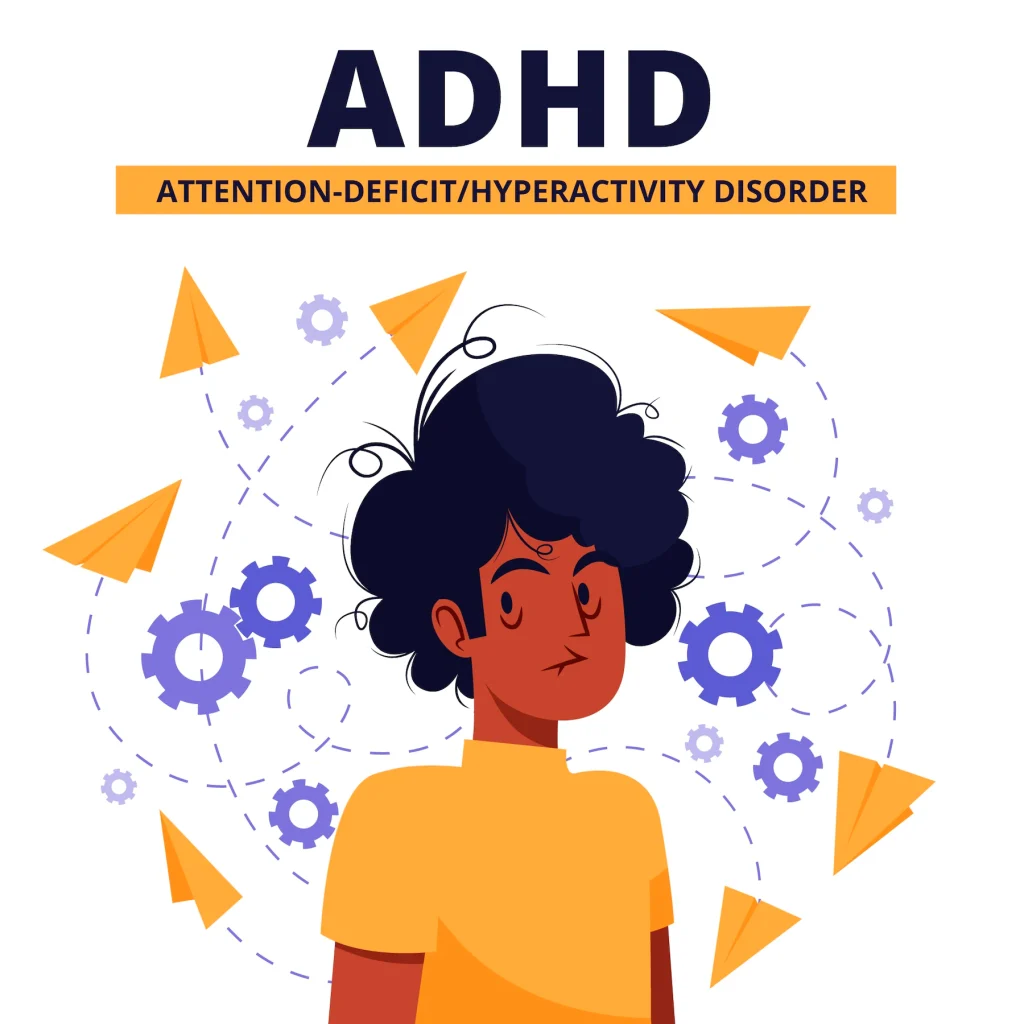19 Personality Disorder Tests You Can Take Online (Quick Result)
Our personality disorder tests are used to assess how a person is feeling and if they may be suffering from this condition. The tests consist of questions about the frequency, intensity, and duration of any personality traits that could indicate a potential personality disorder.

Types of Personality Disorder Tests

Attention Deficit Disorder (ADD) Test
Our attention deficit disorder (ADD) test is designed to help identify the signs and symptoms of Attention Deficit Hyperactivity Disorder. The test consists of questions about concentration, impulsivity, and distractibility that could be associated with ADD.
Attention-Deficit Hyperactivity Disorder (ADHD) Test
Our attention-deficit hyperactivity disorder (ADHD) test is designed to help identify the signs and symptoms of this condition. The test consists of questions about hyperactivity, impulsivity, and inattention that could be associated with ADHD.


Antisocial Personality Disorder (ASPD) Test
Our antisocial personality disorder (ASPD) test is designed to help identify the signs and symptoms of this condition. The test consists of questions about the disregard for social norms, lack of empathy, and impulsivity that could be associated with ASPD.
Avoidant Personality Disorder (AVPD) Test
Our avoidant personality disorder (AVPD) test is designed to help identify the signs and symptoms of this condition. The test consists of questions about social inhibition, feelings of inadequacy, and hypersensitivity that could be associated with AVPD.


Dependent Personality Disorder (DPD) Test
Our dependent personality disorder (DPD) test is designed to help identify the signs and symptoms of this condition. The test consists of questions about a need for approval, excessive dependency, and fear of abandonment that could be associated with DPD.
Dissociative Identity Disorder (DID) Test
Our dissociative identity disorder (DID) test is designed to help identify the signs and symptoms of this condition. The test consists of questions about changes in identity, memory lapses, and feelings of detachment that could be associated with DID.


Obsessive-Compulsive Disorder (OCD) Test
Our obsessive-compulsive disorder (OCD) test is designed to help identify the signs and symptoms of this condition. The test consists of questions about excessive doubts, worries, and rituals that could be associated with OCD.
Histrionic Personality Disorder (HPD) Test
Our histrionic personality disorder (HPD) test is designed to help identify the signs and symptoms of this condition. The test consists of questions about attention-seeking behavior, excessive emotionality, and the need for approval that could be associated with HPD.


Intermittent Explosive Disorder (IED) Test
Our intermittent explosive disorder (IED) test is designed to help identify the signs and symptoms of this condition. The test consists of questions about impulsive aggression, irritability, and difficulty controlling emotions that could be associated with IED.
Narcissistic Personality Disorder (NPD) Test
Our narcissistic personality disorder (NPD) test is designed to help identify the signs and symptoms of this condition. The test consists of questions about grandiosity, the need for admiration, and the lack of empathy that could be associated with NPD.


Obsessive-Compulsive Personality Disorder (OCPD) Test
Our obsessive-compulsive personality disorder (OCPD) test is designed to help identify the signs and symptoms of this condition. The test consists of questions about perfectionism, rigidity, and preoccupation with details that could be associated with OCPD.
Paranoid Personality Disorder (PPD) Test
Our paranoid personality disorder (PPD) test is designed to help identify the signs and symptoms of this condition. The test consists of questions about suspiciousness, paranoid ideation, and mistrust that could be associated with PPD.


Passive-Aggressive Personality Disorder (PAPD) Test
Our passive-aggressive personality disorder (PAPD) test is designed to help identify the signs and symptoms of this condition. The test consists of questions about resistance to demands, stubbornness, and negative attitude that could be associated with PAPD.
Borderline Personality Disorder (BPD) Test
Our borderline personality disorder (BPD) test is designed to help identify the signs and symptoms of this condition. The test consists of questions about impulsivity, instability in relationships, and fear of abandonment that could be associated with BPD.


Schizoid Personality Disorder (ScPD) Test
Our schizoid personality disorder (ScPD) test is designed to help identify the signs and symptoms of this condition. The test consists of questions about a lack of interest in relationships, social detachment, and emotional distance that could be associated with ScPD.
Schizotypal Personality Disorder (STPD) Test
Our schizotypal personality disorder (STPD) test is designed to help identify the signs and symptoms of this condition. The test consists of questions about eccentric behavior, anxiety in social situations, and odd beliefs that could be associated with STPD.


Sociopath Test
Our sociopath test (sociopathy) is designed to help identify the signs and symptoms of this condition. The test consists of questions about callousness, manipulativeness, impulsivity, disregard for laws, and social norms that could be associated with sociopathy.
Psychopath Test
Our psychopath test is designed to help identify the signs and symptoms of this condition. The test consists of questions about lack of remorse, impulsivity, superficial charm, and disregard for others’ feelings that could be associated with psychopathy.

Frequently Asked Questions
Personality disorders are diagnosed using a variety of methods, including psychological evaluations and interviews. Diagnostic assessments such as the Structured Clinical Interview for DSM-IV (SCID-IV) or the Personality Assessment Inventory (PAI) may be used to gather information about a person’s behavior, thoughts, and emotions to help diagnose a personality disorder.
Other tests, such as the Millon Clinical Multiaxial Inventory (MCMI) and the Personality Diagnostic Questionnaire (PDQ-4), may also be used to assess a person’s symptoms and their severity. Additionally, medical professionals may conduct physical examinations to rule out any other underlying medical conditions that could be causing the symptoms.
A diagnosis of a personality disorder is usually made when a person’s behavior and thinking patterns fit into one of the established categories for personality disorders according to the Diagnostic and Statistical Manual of Mental Disorders (DSM-5), same as what we used in our quiz for personality disorders.
The hardest personality disorder to deal with depends on the individual, their environment, and the severity of their symptoms. In general, those with borderline personality disorder (BPD) are often seen as some of the most challenging cases when it comes to dealing with a personality disorder.
This is due to the fact that individuals suffering from BPD tend to have difficulty regulating their emotions and may exhibit impulsive or aggressive behavior. Additionally, they tend to have very unstable relationships with others and often struggle with a fear of abandonment. As such, individuals suffering from BPD require specialized treatment and may benefit from a combination of psychotherapy techniques such as cognitive behavior therapy (CBT).
Yes, personality disorders can be treated. Treatment of these conditions typically involves psychotherapy, with the aim of helping a person to recognize and change their distorted patterns of thinking. Additionally, medication may be prescribed in cases that involve severe symptoms or co-occurring mental health issues such as depression or anxiety.
There is no single cause for personality disorders. It is believed that a combination of genetic, environmental, and psychological factors can contribute to the development of these conditions. Genetics may play a role in some cases, but research suggests that environmental factors such as childhood trauma or stress are more likely to be the primary cause.
Personality disorders typically begin to develop in adolescence or early adulthood, though they can sometimes go undetected until later in life. It is important to note that personality traits vary from person to person and can change over time as a result of life experiences and environmental factors. As such, it is difficult to pinpoint an exact age when personality disorders may emerge.
